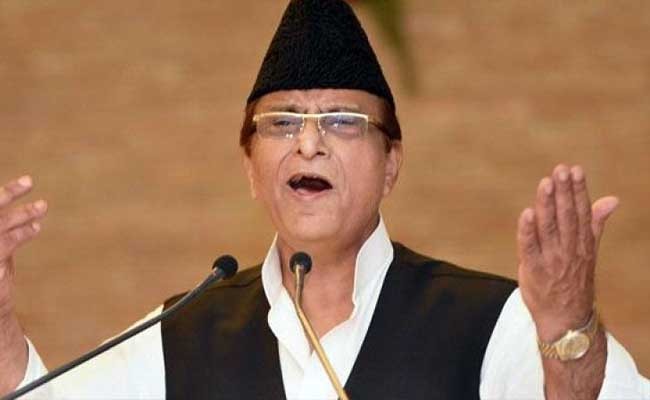
Samajwadi Party (SP) leader, Azam Khan’s statement, against noted actress and BJP candidate, Jaya Prada, is deplorable. To use such language against a lady, is uncivilized behaviour and in complete bad taste. There is nothing that Khan can say to justify it. He tried sheepishly to say that the media is against him, but the media’s job is to provide coverage to such condemnable departures from civility.
Why do some leaders have no sense of what they can say or not say in public? It is understandable that Azam Khan is opposed to the BJP. He can be pardoned too for thinking that Jaya Prada, long a member of the SP, is a renegade who has shifted to the other side. It would even be acceptable if he could have attacked her for political opportunism. But, the language he chose to use, mentioning the colour of her undergarments, is totally unacceptable.
It is good that the Election Commission (EC), on the prompting of the Supreme Court (SC), has acted to debar him from campaigning for a period of 72 hours. This display of deterrent action by the EC is essential. Otherwise, the EC was in serious danger of being viewed as a toothless tiger. The former Chief Election Commissioner (CEC), the late TN Seshan, used to famously say that ‘I eat politicians for breakfast’. To make such statements was part of his flamboyant style, but it did act as an effective speed breaker to the excesses of politicians, and their proclivity to take the Model Code of Conduct (MCC) as a useless, or at best an advisory, piece of paper.
The fact of the matter is that it is up to the EC to make itself relevant and feared. For this, it has unfettered powers under Article 324 of the Constitution, which mandates it to ‘conduct’ the elections. How it chooses to conduct the elections is for the EC to define. Of course, reckless action, without verifiable provocation, would be inadvisable. But, when the misdemeanour is transparent and obvious, the EC is duty bound to act, within the purview of law.
The powers that lie with the EC will be tested repeatedly during the elections. What happens, for instance, if Azam Khan, or for that matter Yogi Adityanath, Mayawati and Maneka Gandhi — whose campaigning has also been suspended for 48 to 72 hours — repeat the offence for which they have been punished? Will the EC merely suspend their campaigning for another period of two to three days, or — in the light of their unrepentant behaviour and blatant flouting of the MCC — or will it impose a stronger penalty, such as disqualification?
As far as the EC is concerned, all should be equal under the law. Prompt action to curb the offences of even the most powerful will send an effective message down the line that the EC means business, and no one can take it lightly, or believe that they can get away by a mild rap on the knuckles.
The EC’s role as an impartial and no-nonsense ombudsman is necessary because politicians and political parties are self-willed with a sense of hubris that makes a mockery of the ordained rules of the game. The Indian elections are the world’s largest organised human exercise, with an electorate as large as 900 million. The ordinary citizen and the voter must have the faith that the elections are being conducted in a manner that does not allow the MCC to be violated.
The Azam Khans of this world must be made aware of the EC’s resolve to act upon the powers conferred upon it by the Constitution. The EC may not, like Seshan did, claim to eat politicians for breakfast, but it can certainly act in a manner such that those who foolhardily cross its path, do surely lose their appetite.


.jpeg)

